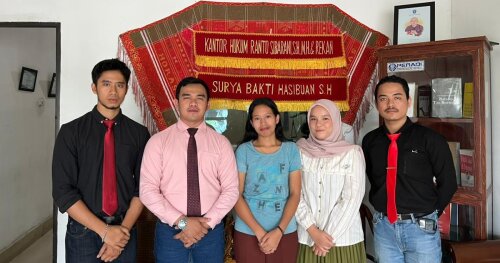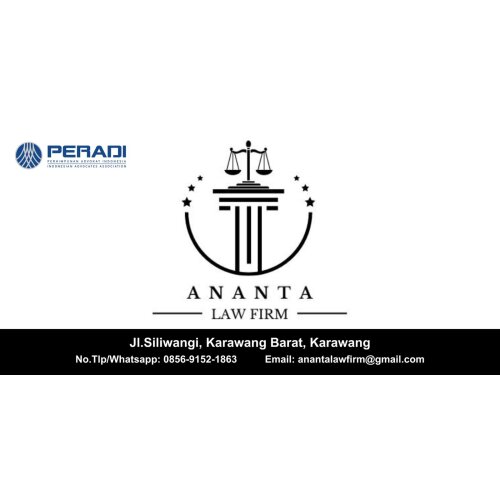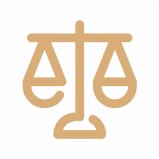Best Technology Transactions Lawyers in Indonesia
Share your needs with us, get contacted by law firms.
Free. Takes 2 min.
Or refine your search by selecting a city:
List of the best lawyers in Indonesia
About Technology Transactions Law in Indonesia
Technology Transactions Law in Indonesia covers various legal aspects related to the transfer and use of technology between parties. This may include licensing agreements, joint ventures, research and development collaborations, as well as the sale and purchase of technology products and services. The legal framework for these transactions is influenced by several laws and regulations, including intellectual property rights, contract law, and data protection regulations. Given Indonesia's growing technological landscape, understanding these laws is crucial for businesses and individuals engaging in technology-related agreements.
Why You May Need a Lawyer
There are several situations where individuals or companies might require legal assistance in Technology Transactions:
1. Structuring and negotiating technology licensing agreements.
2. Navigating complex joint venture or partnership contracts involving technology sharing.
3. Protecting intellectual property rights when transferring technology across borders.
4. Ensuring compliance with data protection and privacy laws during technology transactions.
5. Resolving disputes or breaches related to technology agreements.
6. Advising on risk management and due diligence in tech-related acquisitions or mergers.
7. Understanding the regulatory implications of emerging technologies in business operations.
Local Laws Overview
The legal landscape for Technology Transactions in Indonesia encompasses several key aspects:
Intellectual Property Rights: Governed by laws such as the Copyright Law and Patent Law, ensuring protection for works and inventions.
Contract Law: The Civil Code provides the framework for creating and enforcing technology-related agreements, requiring clear terms and mutual consent.
Data Protection: The legislation ensures the confidentiality and integrity of data shared during technology transactions, particularly sensitive personal information.
Competition Law: The Anti-Monopoly Law addresses issues like market dominance and anti-competitive practices, which can influence technology transactions.
Regulatory Compliance: Various sector-specific regulations may apply depending on the technology in question, such as telecommunications, e-commerce, and fintech regulations.
Frequently Asked Questions
What are the key considerations in a technology licensing agreement?
Key considerations include defining the scope of use, duration, geographical coverage, payment terms, confidentiality clauses, and dispute resolution mechanisms.
How does Indonesian law protect intellectual property in technology transactions?
Indonesian law protects intellectual property through registration with relevant authorities and safeguarding against unauthorized use or infringement.
What are the data protection requirements for technology contracts in Indonesia?
Data protection requirements involve obtaining consent for data processing, implementing security measures, and ensuring data subjects' rights are upheld.
How are disputes in technology transactions typically resolved?
Disputes are generally resolved through mediation, arbitration, or litigation, with arbitration being a popular choice due to its confidentiality and efficiency.
Can foreign companies easily engage in technology transactions in Indonesia?
While foreign companies can engage in transactions, they must navigate regulatory requirements and may need local partnerships or subsidiaries for certain activities.
What role do government approvals play in technology transactions?
Certain transactions, especially those involving sensitive technologies or foreign investment, might require government approvals or notifications.
How does competition law impact technology agreements?
Competition law ensures that technology agreements do not create unfair market dominance or suppress competition, thus maintaining market fairness.
What is the impact of the ASEAN Economic Community (AEC) on technology transactions?
The AEC aims to facilitate easier cross-border technology contracts within ASEAN countries, promoting regional innovation and collaboration.
Are there any tax implications for technology transactions?
Yes, there can be tax implications such as withholding tax on royalties and transfer pricing regulations for technology transactions.
What are the usual confidentiality obligations in a technology transaction?
Confidentiality obligations typically involve non-disclosure agreements to protect proprietary information and trade secrets during the transaction.
Additional Resources
1. The Directorate General of Intellectual Property (DGIP) - provides resources on IP protection.
2. Indonesian Ministry of Communication and Information Technology - offers information on tech regulations.
3. Indonesian Competition Commission (KPPU) - oversees competition law compliance in technology transactions.
4. Local legal firms specializing in technology law - provide expert guidance tailored to specific needs.
5. Online portals for legal advice - such as practitioner networks or professional organizations that offer insights and consultations.
Next Steps
If you need legal assistance in Technology Transactions, consider the following steps:
1. Identify your specific needs - this could be drafting agreements, ensuring compliance, or dispute resolution.
2. Research and contact law firms in Indonesia that specialize in technology law for consultations.
3. Prepare all necessary documents and information pertinent to your technology transaction.
4. Seek recommendations from industry peers or business networks for reputable legal services.
5. Engage with professional legal bodies or organizations that offer resources and support in technology transactions.
6. Stay informed about changes in relevant laws and regulations to ensure ongoing compliance.
Lawzana helps you find the best lawyers and law firms in Indonesia through a curated and pre-screened list of qualified legal professionals. Our platform offers rankings and detailed profiles of attorneys and law firms, allowing you to compare based on practice areas, including Technology Transactions, experience, and client feedback.
Each profile includes a description of the firm's areas of practice, client reviews, team members and partners, year of establishment, spoken languages, office locations, contact information, social media presence, and any published articles or resources. Most firms on our platform speak English and are experienced in both local and international legal matters.
Get a quote from top-rated law firms in Indonesia — quickly, securely, and without unnecessary hassle.
Disclaimer:
The information provided on this page is for general informational purposes only and does not constitute legal advice. While we strive to ensure the accuracy and relevance of the content, legal information may change over time, and interpretations of the law can vary. You should always consult with a qualified legal professional for advice specific to your situation.
We disclaim all liability for actions taken or not taken based on the content of this page. If you believe any information is incorrect or outdated, please contact us, and we will review and update it where appropriate.
Browse technology transactions law firms by city in Indonesia
Refine your search by selecting a city.
















